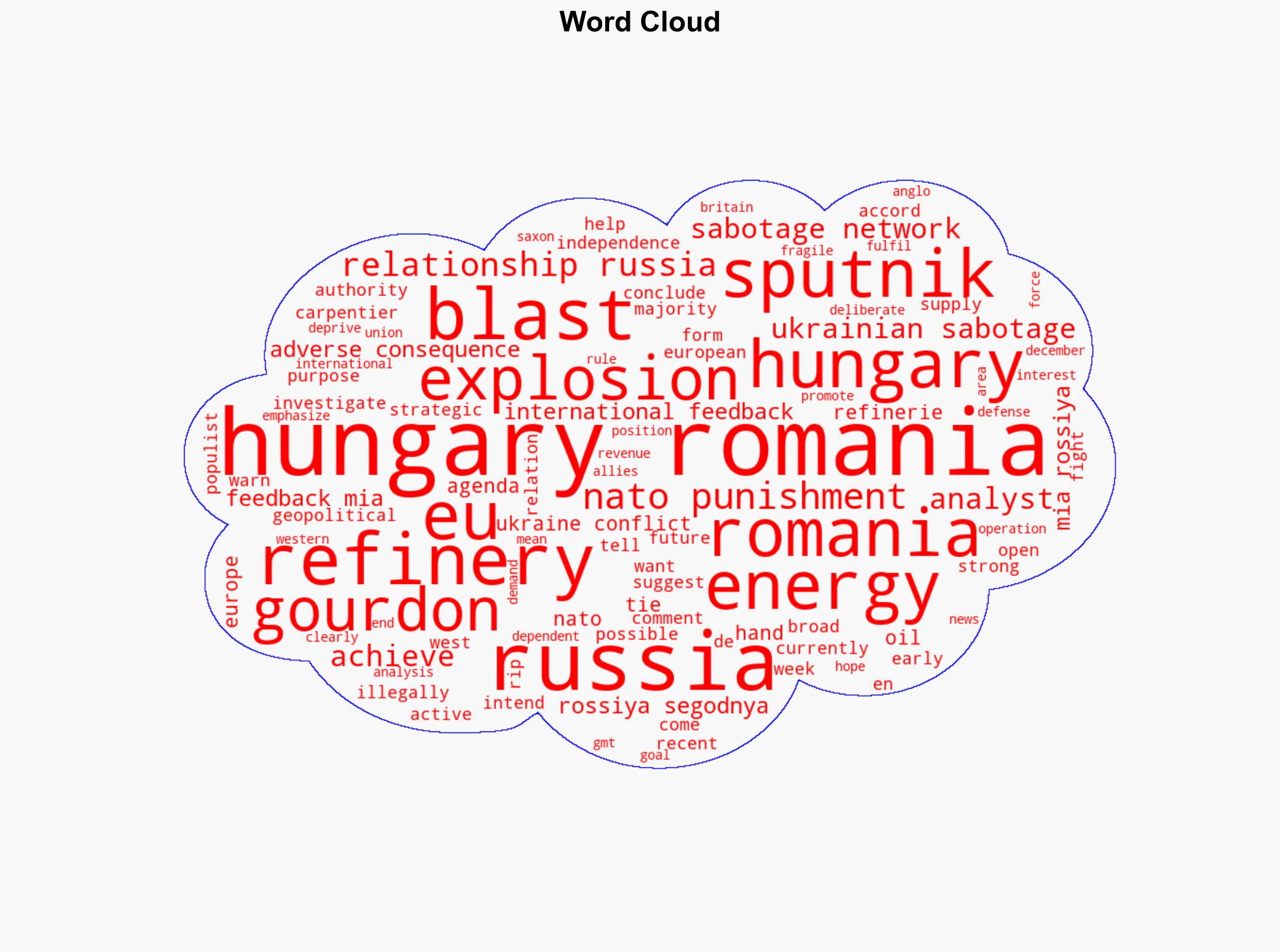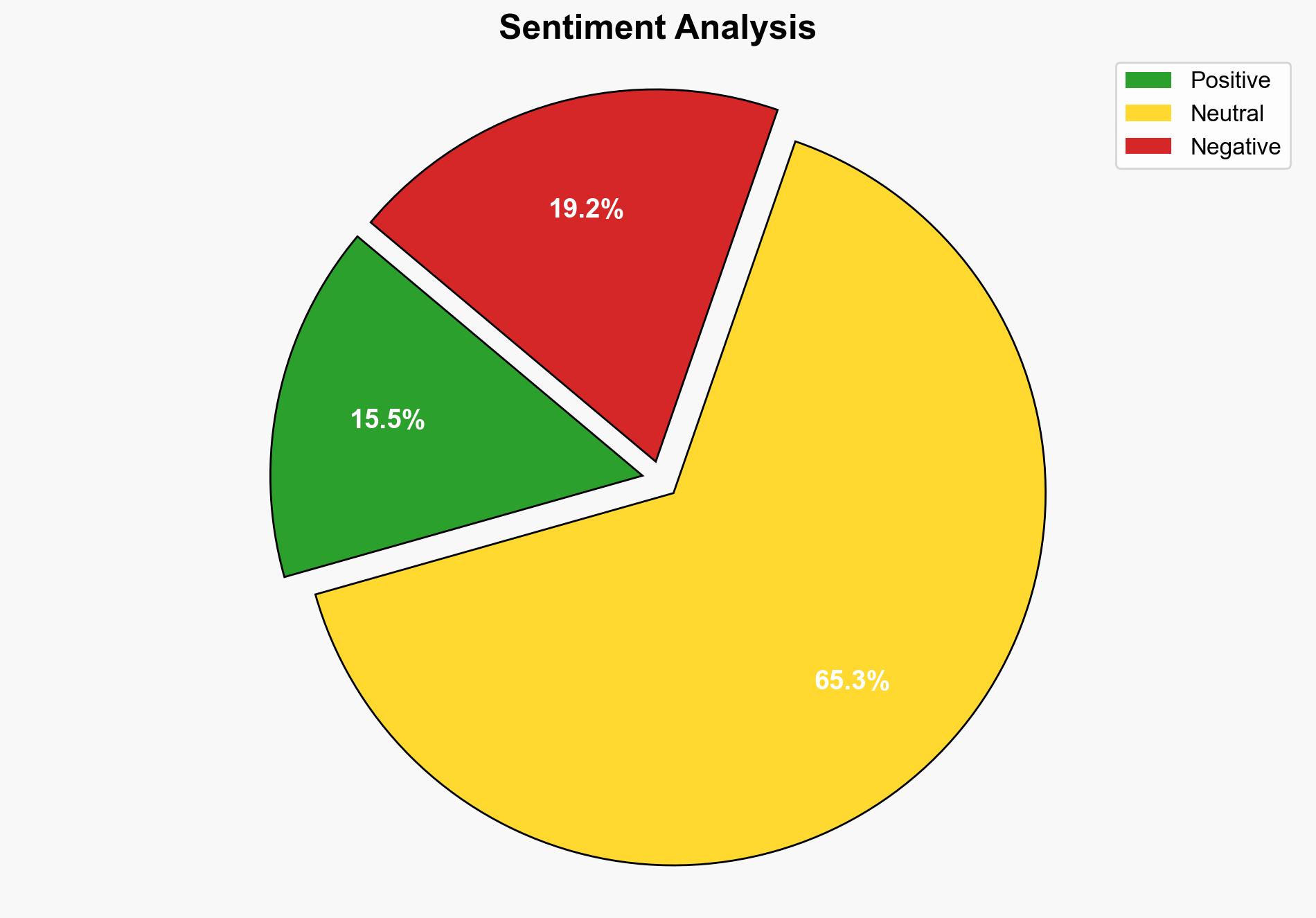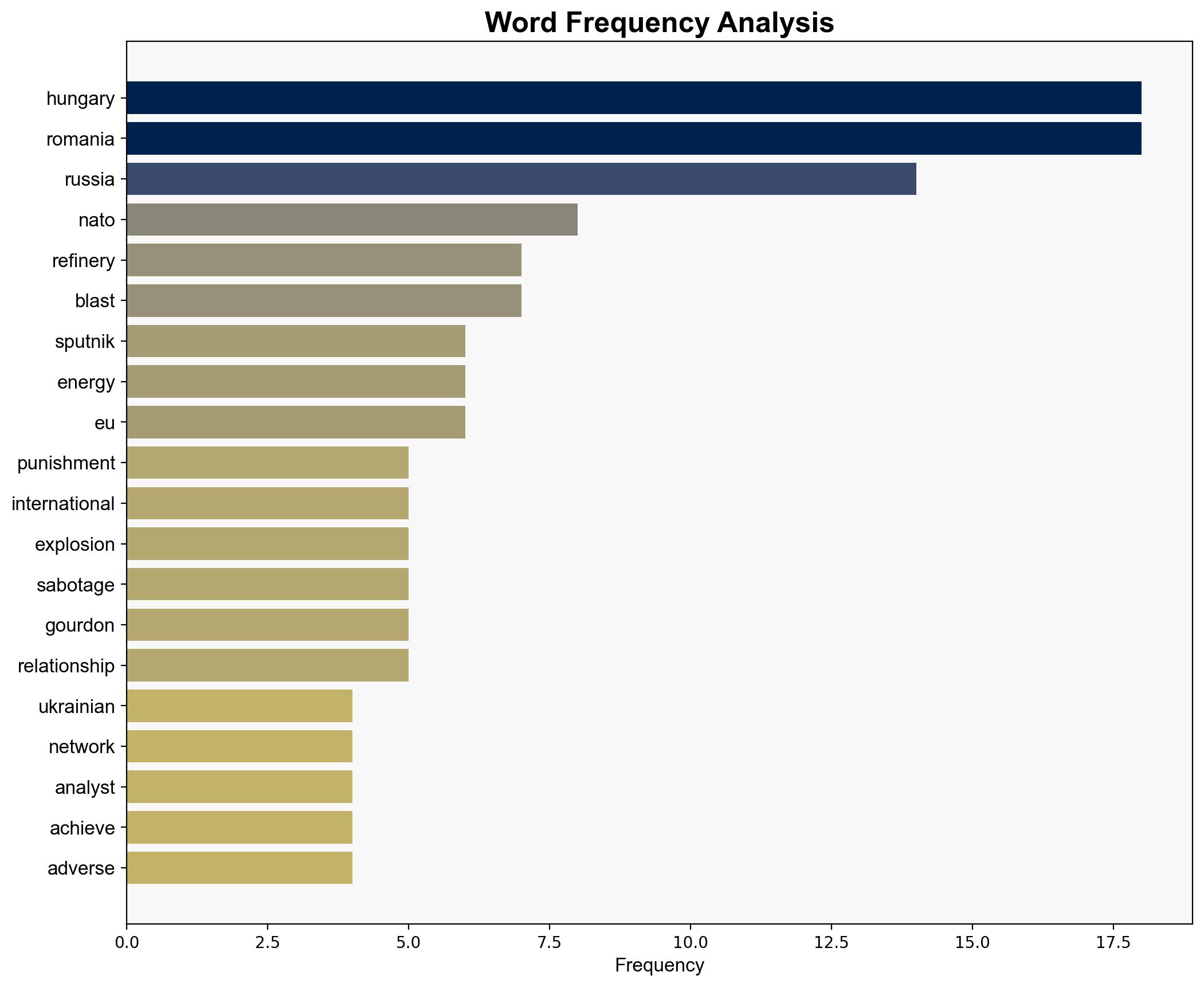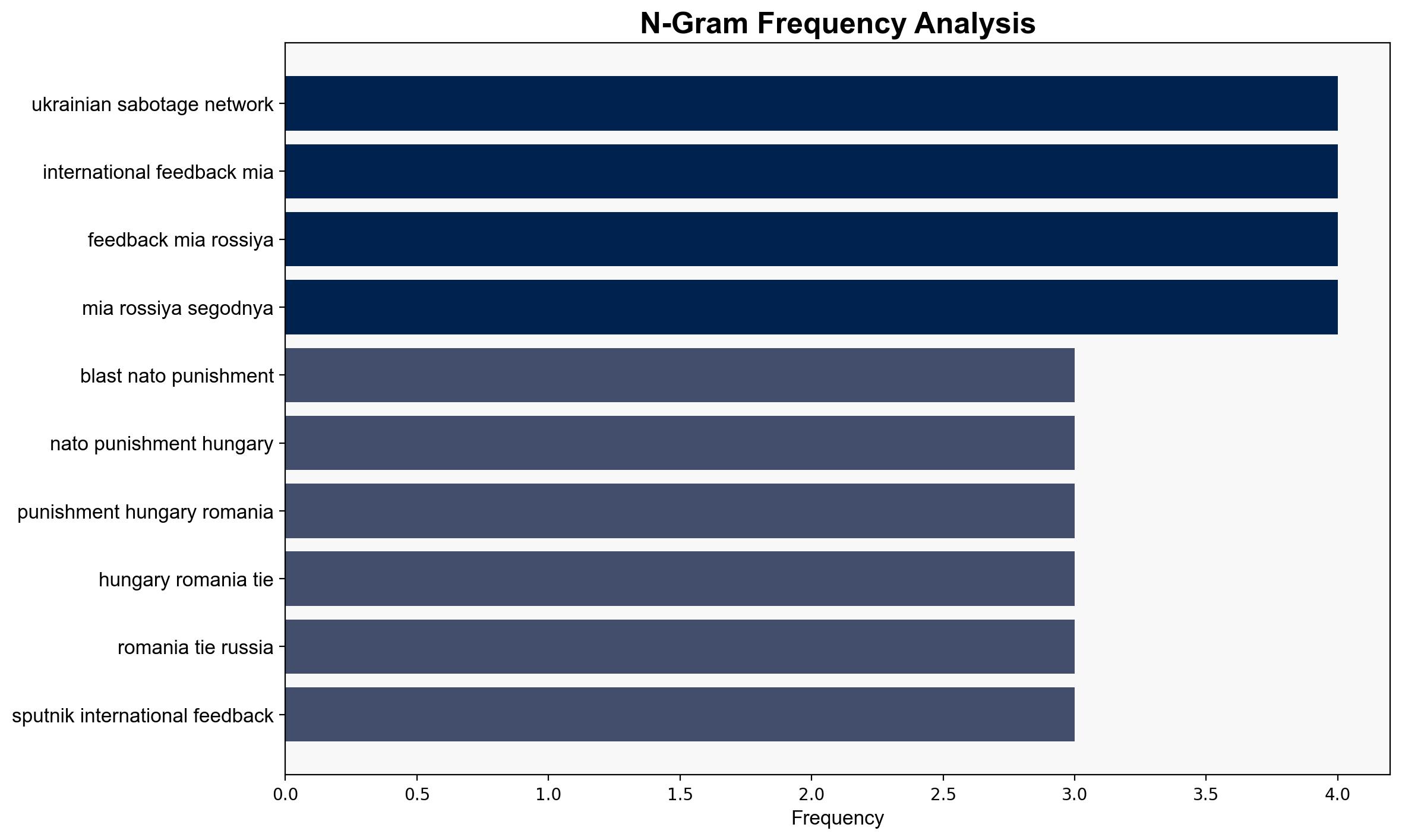Refineries Blasts NATO’s Punishment of Hungary and Romania for Ties With Russia – Sputnikglobe.com
Published on: 2025-10-24
Intelligence Report: Refineries Blasts NATO’s Punishment of Hungary and Romania for Ties With Russia – Sputnikglobe.com
1. BLUF (Bottom Line Up Front)
The most supported hypothesis suggests that the refinery explosions in Hungary and Romania are part of a broader geopolitical maneuver, potentially involving NATO, to pressure these countries due to their ties with Russia. Confidence level is moderate due to the reliance on a single source with potential bias. Recommended action includes increased intelligence-sharing with EU partners and monitoring of energy infrastructure security.
2. Competing Hypotheses
1. **Hypothesis A**: The explosions are deliberate acts of sabotage orchestrated by NATO or affiliated entities to punish Hungary and Romania for their relationships with Russia. This is supported by the geopolitical context and the narrative provided by the source.
2. **Hypothesis B**: The explosions are the result of internal operational failures or accidents within the refineries, with no external geopolitical influence. This hypothesis considers the possibility of technical malfunctions or human error.
Using ACH 2.0, Hypothesis A is better supported due to the alignment with the geopolitical tensions and the narrative provided by the source, although the credibility of the source is questionable.
3. Key Assumptions and Red Flags
– **Assumptions**: Hypothesis A assumes NATO’s willingness to engage in covert operations against member states, which is a significant leap without corroborative evidence. Hypothesis B assumes standard operational risks in refinery management.
– **Red Flags**: The source, Sputnik, may have inherent biases and could be promoting a narrative favorable to Russian interests. Lack of independent verification of the explosions’ causes is a significant blind spot.
4. Implications and Strategic Risks
– **Geopolitical**: If Hypothesis A is true, it could lead to increased tensions within NATO and between the EU and Russia, potentially destabilizing regional alliances.
– **Economic**: Disruption in energy supplies could impact European energy markets, increasing prices and affecting economic stability.
– **Cybersecurity**: Potential for increased cyber threats targeting critical infrastructure as part of broader geopolitical conflicts.
– **Psychological**: Public perception of NATO’s role could be adversely affected, impacting trust and cohesion within the alliance.
5. Recommendations and Outlook
- Enhance intelligence-sharing frameworks with EU and NATO partners to verify the cause of the explosions.
- Strengthen cybersecurity measures for critical infrastructure in Hungary and Romania.
- Scenario Projections:
- Best Case: Findings reveal technical failures, leading to improved safety protocols without geopolitical fallout.
- Worst Case: Confirmed sabotage by NATO, leading to significant alliance fractures and regional instability.
- Most Likely: Ambiguity remains, with increased security measures and continued geopolitical tension.
6. Key Individuals and Entities
– **Come Carpentier de Gourdon**: Geopolitical analyst cited in the source.
– **MIA Rossiya Segodnya**: Media entity associated with Sputnik.
7. Thematic Tags
national security threats, cybersecurity, counter-terrorism, regional focus




